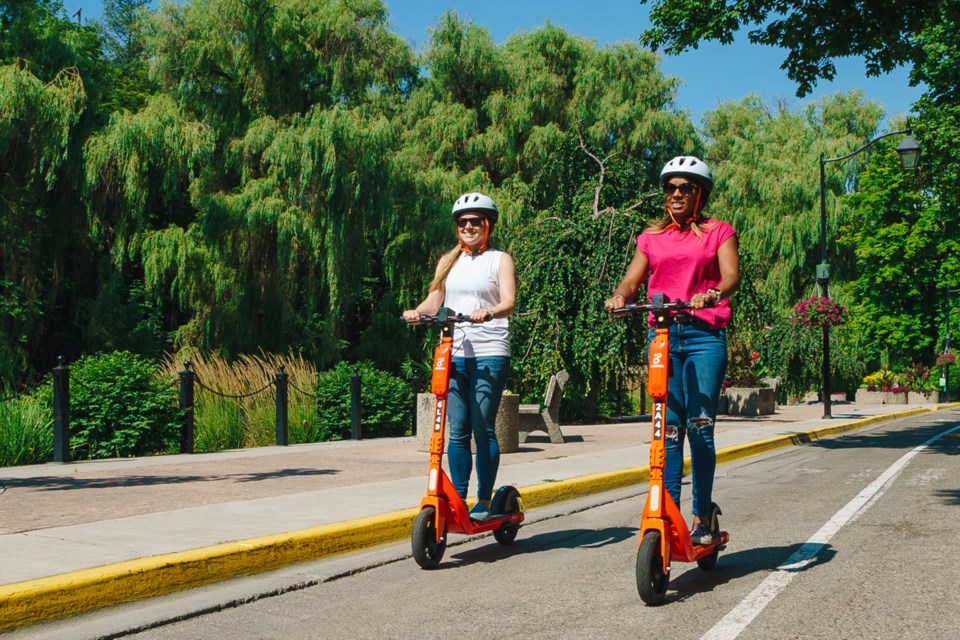Residents in Cambridge will soon have a new, more environmentally friendly way to get around the city.
The Region of Waterloo along with the cities of Cambridge, Kitchener and Waterloo are entering into a partnership with Neuron Mobility to roll out e-bikes and e-scooters that can be rented for transportation in the city.
People will be able to access the vehicles through a membership, pay-per-use or time based fares.
The program is designed to help the region meet its goals of active transportation, climate action and providing a valuable service to the community.
The region's approved 2023 Grand River Transit Operating Budget includes anticipated revenue of $85,000 for micro-mobility integration, which will directly offset the budgeted program costs associated with administration, evaluation, operations, service expansion and public outreach.
A soft launch is expected to begin this month with a full service launch in early to mid May.
The first year of the program will be seasonal, ending on October 31.
The service comes about four years after Lime electric scooters were piloted for use along Waterloo's trail system and a year after the region changed its bylaw to allow the scooters to operate on paved trails and some city streets.
A Shared Micromobility Feasibility Study performed by consultants from Alta Planning+ Design showed significant usage rates and positive impacts on the environment.
It was projected in the first full year of implementation that 620,500 bike trips and 465,375 e-scooter trips could be made in what the study called a “medium uptake scenario.”
By year five of the program, the study found that bike and e-scooter share could reduce emissions from transportation by as much as 1,241 metric tonnes of carbon dioxide annually.
These estimates were based on 850 bikes and 425 scooters in circulation.
Each vehicle is equipped with a GPS system to monitor usage rates with staff being able to set vehicle restrictions using GPS perimeters.
Neuron will be responsible for having 500 e-bikes and 500 e-scooters active on the road 60 days after the launch date.
Introducing 1,000 new vehicles onto city roads does raise concerns.
To address this, Neuron has created a safety plan with all vehicles being equipped with measures such as bells, headlights, 360 degree reflectors and a voice guidance system.
The program will be continually monitored for ways to improve safety and efficiency.
In order to match Grand River Transit hours, the vehicles will be available for use between 5 a.m. and 1 a.m. at designated virtual stations that can be found using the Neuron mobile app.
The virtual stations will be set up primarily in the downtown cores.
